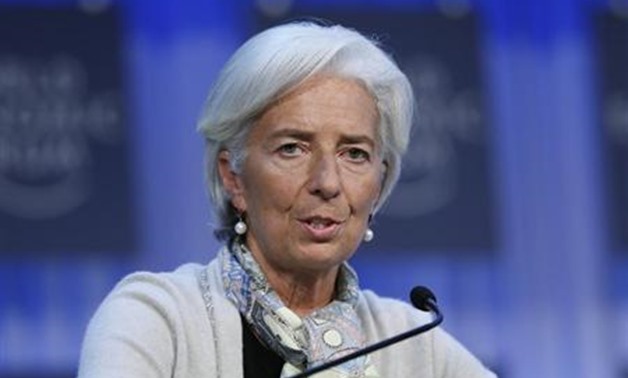
Christine Lagarde, chief of the International Monetary Fund (IMF)- Reuters.jpg
CAIRO – 9 July 2017: Trade between countries is crippled by barriers and subsidies, managing director of the International Monetary Fund (IMF) Christine Lagarde said during G20 Summit in Hamburg.
Lagarde said global trade can be boosted by applying rules that promote competition, highlighting the significance of investing in infrastructure, supporting financial inclusion and introduce labor reforms.
The following is the full statement by Lagarde:
“ I would like to warmly congratulate Chancellor Merkel and the German authorities on their steady leadership of the G20 this year and on hosting the Leaders Summit meeting in the beautiful city of Hamburg.”
“In my discussions with Leaders I noted that the global economic recovery is on track, broad-based, and expected to continue into next year. At the same time, there is a need to guard against complacency and risks, including elevated financial vulnerabilities, low productivity, and rising inequality.”
“The current period of growth should be used to further safeguard the financial sector-- by building up capital buffers and strengthening corporate and bank balance sheets; to address the issue of stagnant real wages-- which can undermine the recovery and fuel discontent; and to confront the problem of excessive current account imbalances -- with both surplus and deficit countries playing their part.
“In line with the Hamburg Action Plan I emphasized the following priorities:
Step up trade reform. An essential part of this effort must be to reduce barriers, subsidies, and other measures that distort trade. We can strengthen the global trading system by reaffirming our commitment to well-enforced rules that promote competition while creating a level playing field.
Increase productive infrastructure investment. This would boost employment and growth in the short-term and productivity over the medium-term.
Promote financial inclusion. Increased access to finance, especially for women, is critical to support sustainable growth--and will create millions more jobs.
Invest in human capital. To better equip populations to deal with the challenges of technological and structural economic shifts. This is especially important in the context of increased automation and the use of artificial intelligence.
Accelerate labour market reforms. A crucial dimension here is to close the gender gap in terms of female labor force participation -- which is good for increasing growth, reducing inequality, and diversifying economies.
“I strongly welcome the G20's focus on climate change, the sustainable development goals, and the challenges facing low-income countries.
I commend, in particular, Germany’s leadership in launching the Compact with Africa, which is designed to boost private investment across the continent. The countries involved in the first wave of this effort are already receiving support from the IMF– to help strengthen their macroeconomic frameworks and institutions, including by increasing support for capacity development.
"I am encouraged that the Hamburg Action Plan includes an emphasis on strengthening the global financial safety net, with a strong, quota-based, and adequately financed IMF at its center. I am also pleased that the G20 Leaders highlighted the importance of the IMF continuing to provide capacity development in the area of anti-money laundering and countering the financing of terrorism.
“Finally, I would like to express my deep appreciation to the German government and the city of Hamburg for their generous hospitality throughout the G20 presidency.
My particular thanks go to the men and women who worked around the clock to ensure public safety and a successful outcome of the meetings, and I wish a speedy recovery to the people that suffered injuries during the protests in recent days.
The IMF looks forward very much to working closely with the Argentinian Presidency of the G20 in 2018."

Comments
Leave a Comment